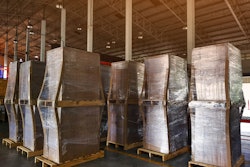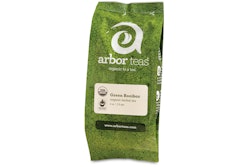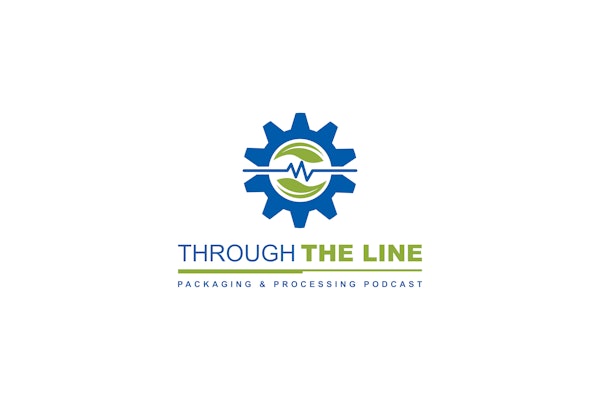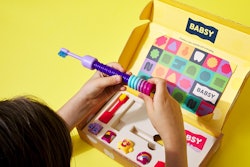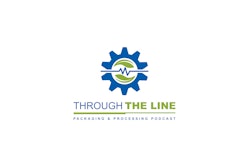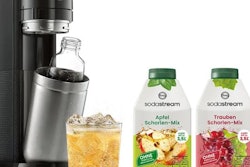The brand produces what it calls, “hypoallergenic, green, gluten-free and cruelty free,” shampoos, conditioners, soaps, lotions, and other similar products designed “to eliminate (or minimize) the use of harsh or suspect chemicals in your baby’s bath and skincare routines by formulating products with highest quality and effective natural and organic ingredients.”
The company says it has taken its eco-friendly commitment one step further with the release of aluminum packaging options for seven of its best-selling products.
“Nature’s Baby is committed to create formulas that are effective, eco-friendly, and safe for children and our environment and this commitment extends to our packaging. We’re happy to announce this switch to aluminum—a material we can feel good about putting on the shelf, in our customers’ homes, and into the recycling bin,” says Nicole Williams, Operations Manager, Nature’s Baby.
Part of what attracted the brand to aluminum packaging is that the material is 100% recyclable for an infinite number of cycles and it’s typically made of 68% post-consumer recycled (PCR) materials. The high PCR content is important since it takes just 8% of the energy to produce recycled aluminum as it does to create new aluminum, leaving far less used waste in landfills.
While pricier than plastic or glass, aluminum is also lightweight and shatterproof, a positive feature in bathroom settings where slippery soaps are involved.
Aluminum is gaining momentum as a material for quite a few of applications, not just personal care products like Nature's Baby. Check out these recent articles from Packaging World.
The legacy bottle that preceded the pack design for this cross-section of products was a PET container with a pressure-sensitive label.
“PET is one of the best-recycled types of plastic, but it is only recycled at 29% [2018],” Williams says. “Most recycling facilities do not make enough money in recycling plastic, whereas, aluminum is 100% recyclable and provides a much higher value to recycling facilities ($1210 per ton for aluminum versus $237 per ton for plastic). Aluminum weighs more than plastic, but just slightly as it is one of the lightest metals available. Also, plastic recycling cycles are limited* but aluminum can be recycled over and over again with virtually no loss. Bottom line, 100% recyclability and greater incentives for recycling aluminum makes it an ideal sustainable container.”
* However, according to NAPCOR, the trade association for the PET plastic packaging industry in North America, when recycled properly, PET bottles can be reprocessed for reuse, over and over, in millions of products.
No automation needed to be replaced with the switch from PET to aluminum, which was good news for Nature’s Baby. The existing filling line is capable of handling the new aluminum bottles with limited adjustments. Also, the company’s existing pump closures were exactly the same size and work fine for the threaded aluminum, so there were no manufacturing issues. The closures are a hybrid of PET and aluminum, and require a bit of consumer education to ensure proper recycling.
“On our website and on Amazon, we encourage customers to remove the pump prior to discarding of the bottles,” Williams says. “On the label, due to real estate [space] constraints, we just ask customers to reuse the bottle or to discard it in the proper recycling bin.”
The company sources the aluminum bottles from unnamed vendors in the U.S. and China.
“I believe that most aluminum bottles in the market are originally from China as the U.S. aluminum manufacturers are mostly making beer and soda cans and not shampoo and lotion bottles,” Williams says. This indicates that unlike the AB-InBevs and Miller-Coors of the world, the ongoing aluminum shortage isn’t affecting Nature’s Baby like it might more volume-oriented, commoditized aluminum can users.
Currently, the brand is using flexographically printed pressure-sensitive labels. But as the new line takes off, Williams intends to switch to silk-screening the labels for a higher-end feel. Nature’s Baby been working with the company Action Packaging and Design for over 10 years to produce its labels.
“This is a permanent switch from plastic to aluminum,” Williams says. “That includes our shampoos, conditioners, and lotion. Due to pricing issues, we cannot replace our 16-ounce plastics with aluminum. It just costs a lot and will price the product out of the [consumer] comfort zone as compared with similar items in the market.
“For now, we have just replaced everything in eight-ounce sizes, even though the price of the aluminum bottles are four times the cost of plastic. We absorbed that cost in our margins,” she concludes. “However, we are currently looking into wheat straw plastic bottles to replace our 16-ounce plastic containers in the future. Wheat straw plastic uses 50% less plastic than other plastic containers. The problem we are facing is that the other 50% of wheat straw container is made with polyethylene, which we don’t like.”
Nature’s Baby has made the switch to aluminum packaging for three of its most popular shampoos, three conditioners, and one baby lotion. This range includes the 8-oz versions of their Vanilla Tangerine, Coconut Pineapple, and Lavender Chamomile Shampoo & Body Wash ($11.95) and Conditioner & Detangler ($12.95), as well as the 8-oz Face & Body Moisturizer ($12.95). -PW



